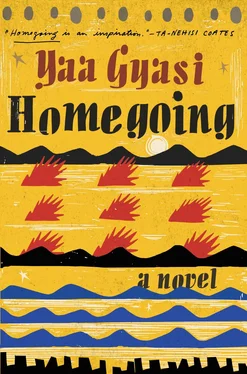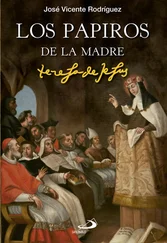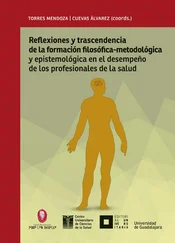Now, nearing his fiftieth birthday, Yaw no longer knew if he believed this was true.
—
The semester passed. In June, Kwame Nkrumah, a political leader from Nkroful, started the Convention People’s Party and Edward joined soon thereafter. “Independence is coming, my brother,” he was fond of saying to Yaw on the nights when Yaw still joined him and his wife for dinner. This happened less and less. Mrs. Boahen was expecting her fifth child and the pregnancy was difficult. So difficult that the Boahens stopped entertaining. First just the other teachers and town friends that they had acquired, but then Yaw, too, noticed that even his welcome began to wear.
And so, Yaw got a house girl. He had been resistant to having other people in his house for as long as he could remember. He could cook a few dishes for himself competently enough. He could fetch his own water and wash his own clothes. He did not keep his house as neat as he had been forced to keep his room in school, but none of this bothered him. He preferred the clutter and the plain meals if it meant he would not have to have another person in his house, looking at him.
“That’s ridiculous!” Edward said. “You’re a teacher. People stare at you all day.”
But for Yaw that was different. At the front of the classroom he was not himself. He was a performer in the tradition of village dancers and storytellers. At home, he was who he really was. Shy and lonely, angry and embarrassed. He did not want anyone to see him there.
Edward examined all of the candidates himself, and in the end Yaw ended up with Esther, an Ahanta from right there in Takoradi.
Esther was a plain girl. Maybe even ugly. Her eyes were too large for her head and her head too large for her body. On the first day of work, Yaw showed her to her room at the back of the house and told her that he spent most of his time writing. He asked her not to disturb him and then went back out to sit at his desk.
The book was getting unruly. The Gold Coast independence movement’s political leaders, the Big Six, had all come back from school in America and England, and as far as Yaw could tell they were all like Edward, patient but forceful, confident that independence would indeed come. Yaw had been reading more and more about the black people of America’s movement toward freedom, and he was attracted to the rage that lit each sentence of their books on fire. He wanted that from his book. An academic rage. All he could seem to muster was a long-winded whine.
“Ess-cuse me, sah.”
Yaw looked up from his book. Esther was standing in front of him with the long handmade broom she had insisted on bringing with her, even though Yaw told her that his house had many brooms.
“You don’t have to speak in English,” Yaw said.
“Yes, sah, but my sis-tah say you ah teach-ah, so I must speak English.”
She looked terrified, her shoulders hunched and her hands gripping the broom so tightly that Yaw could see the area around her knuckles begin to stretch and redden. He wished he could cover his face, put the young woman at ease.
“You understand Twi?” Yaw said in his mother tongue, and Esther nodded. “Then speak freely. We hear enough English as it is.”
It was like he had opened a gate. Her body began to slip into an easy stance, and Yaw realized that it was not his scar that had terrified her, but rather the problem of language, a marker of her education, her class, compared with his. She had been terrified that for the teacher of the white book, she would have to speak the white tongue. Now, released from English, Esther smiled more brightly than Yaw had seen anyone smile in ages. He could see the large, proud gap that stood like a doorway between her two front teeth, and he found himself training his gaze through that door as though he could see all the way down into her throat, her gut, the home of her very soul.
“Sir, I have finished cleaning the bedroom. You have a lot of books in there. Did you know? Do you read all of those books? Can you read English? Sir, where do you keep the palm oil? I could not find it in the kitchen. It is a nice kitchen. What will you have for dinner? Should I go to market? What are you writing?”
Did she breathe? If she had, Yaw didn’t hear it. He shuffled the pages of his book and set it aside as he thought about what to say next.
“Make whatever you want for dinner. I don’t care what.”
She nodded, not dissatisfied, it seemed, with the fact that he had answered only one of her questions. “I’ll make goat pepper soup,” she said, her eyes cast downward, moving this way and that, as though searching the floor for any thoughts she might have dropped there. “I will go to market today.” She looked up at him. “Would you like to go to market with me?”
Suddenly Yaw was angry or nervous. He couldn’t quite tell which, and so he chose to respond with anger. “Why should I go to market with you? Don’t you work for me?” he shouted.
Her mouth closed, the portal to her soul hidden. She cocked her head to the side and stared at him as though it was just then occurring to her that he had a face, that his face had a scar. She studied it for one second more, and then smiled again. “I thought you might want a break from your writing. My sister said teachers are very serious because they do all their work in their minds and so sometimes they have to be reminded that they must use their bodies. Will you not use your body if you walk to the market?”
Now it was Yaw’s turn to smile. Esther laughed, her whole wide mouth open, and suddenly Yaw had the strange urge to reach in and pull something of that happiness out for himself so that he might keep it with him always.
They went to the market. Fat women with babies at their breasts sold soup, corn, yams, meat. Men and young boys stood bartering with each other. Some sold food, others sold carvings and wooden drums. Yaw stopped by the stand of a boy who looked to be about thirteen who was using a slim knife to carve symbols into a drum. The boy’s father stood careful watch beside him. Yaw recognized the man from last year’s Kundum. He was one of the best drummers Yaw had ever seen, and as the man stared at his son, Yaw could see that he wanted the boy to be even better.
“You like to drum?” Esther asked.
Yaw didn’t realize she had been watching him. It was so rare that he had to be concerned with other people. He hadn’t been angry after all. Just nervous.
“Me? No, no. I never learned how.”
She nodded. She led the freshly purchased, roped goat behind her, and at times while they walked, the animal grew obstinate, digging its hooves into the ground and nudging its head against the air, its horns reflecting light. She tugged it forcefully, and it bleated, perhaps at her, though perhaps it would have done so anyway.
Yaw realized that he should say something. He cleared his throat and looked at her, but his words stuck. She smiled at him.
“I make a very good goat pepper soup,” she said.
“Is that right?”
“Yes, so good you would think your mother made it. Where is your mother?” she asked in her breathless way.
The goat stood still, screamed. Esther wrapped the rope once more around her wrist and tugged. It occurred to Yaw that he should offer to walk the goat for her, but he didn’t.
“My mother lives in Edweso. I haven’t seen her since the day I turned six.” He paused. “She did this to me.” He pointed to the scar, angled his body so that she could see it more clearly.
Esther stopped walking and so Yaw stopped too. She looked at him, and for a second he worried that she would reach out and try to touch him, but she didn’t.
Instead she said, “You’re very angry.”
“Yes,” he said. It was something he rarely admitted to himself, let alone to anyone else. The longer he looked at himself in a mirror, the longer he lived alone, the longer the country he loved stayed under colonial rule, the angrier he became. And the nebulous, mysterious object of his anger was his mother, a woman whose face he could barely remember, but a face reflected in his own scar.
Читать дальше

![Ally Carter - [Gallagher Girls 01] I'd Tell You I Love You But Then I'd Have to Kill You](/books/262179/ally-carter-gallagher-girls-01-i-d-tell-you-i-lo-thumb.webp)










